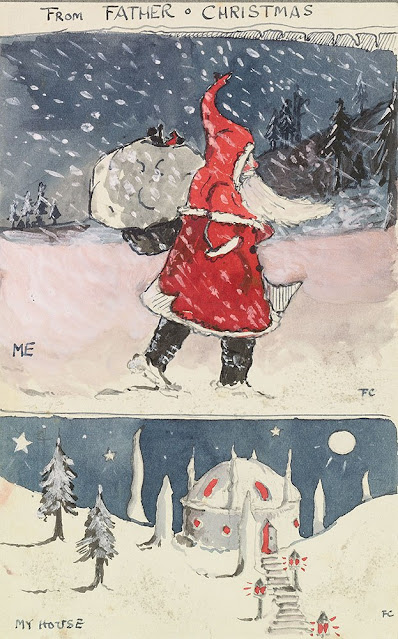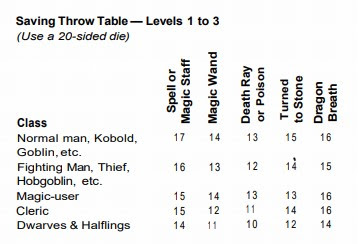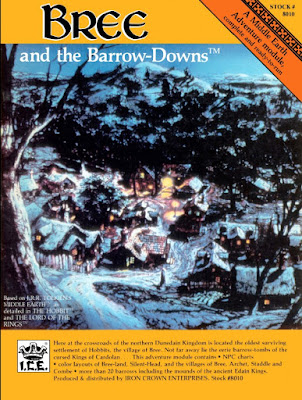In his book, Fantasy Role Playing Games, J. Eric Holmes devotes an entire chapter to the history of RPGs, with particular attention devoted – obviously – to the creation of Dungeons & Dragons. Holmes's perspective is interesting, both because of the relatively early publication date of his book (1981) and because of his direct involvement in that history, through the editing of the 1977 D&D Basic Set (about which I'll say more in a future post).
Before getting to the history of roleplaying games proper, Holmes takes note of several "prehistoric" phenomena that, in his view, laid the groundwork for the invention of the hobby. The first is the growth and development of miniatures wargames, as one might expect, while another, in his opinion, is the paperback publication of The Lord of the Rings. Of the novel, he says
This epic fairy tale, without a doubt the greatest work of fiction produced in this century, inflamed the imaginations of an entire generation. The story, as most of my players know, involves the clash of great armies of men, elves, dwarves, goblins and magical creatures.
From there, Holmes discusses the publication of Chainmail and its incorporation of "a large amount of fantasy material, magic spells, giants, trolls, dragons and what have you." He also notes that Chainmail was "reasonably popular." It's at this point that Holmes makes a brief but meaningful aside, saying:
What happened next is conjecture on my part. Unfortunately, as so often happens in an enterprise that becomes financially successful, the principals are now engaged in litigation over the priority of the discovery.
With that caveat out of the way, Holmes turns to Arneson and the Blackmoor campaign, "run using the Chainmail rules, which the gamers [i.e. those in Minneapolis] were already used to." It is to Arneson that he attributes that concept of dungeons, which I think is indisputable. Arneson and Gygax then put their heads together, "making up new spells, new monsters and new magic artifacts at a tremendous rate," at which point "they decided to risk the investment and have Gygax's little company, called TSR (Tactical Studies Rules), publish the books." Remember: this is Holmes's perspective, as he saw it in 1981, nothing more.
After Dungeons & Dragons was published, its popularity grew, with "myriads of new players springing up in every high school and college in the country," but, he adds, the rules "were often confusing."
Few, if any, of the new players guessed that spells could be used only once in each expedition, and beleaguered Dungeon Masters made up their own systems for handling these ambiguities.
At Caltech in Pasadena, students Cowan, Clark, Shih, Smith, Dahl, and Peterson put together a set of rules with what they felt to be an improved combat and magic system: Warlock. I used their combat table when I first started playing D&D, because I could not understand the one in the original books. In Arizona, Ken St. Andre created a role playing game called Tunnels and Trolls, again with different rules for magic and combat. These games were published; other rule sets appeared in the amateur magazines. In fact, within a few years of its appearance, D&D had generated many more pages of commentary and revision than were contained in the original three little rule books.
This section, I think, hits on a deep truth about the early history of both D&D and roleplaying games more generally: no one had any idea what they were doing. There was no "plan" or "vision" beyond trying – not very well by most accounts from the time – to document the ideas, processes, and rules that allowed Arneson, Gygax, and others to create these "wildly imaginative fantasy" campaigns that, in turn, inspired others to create their own versions. Holmes quotes Gygax on the development of D&D and what he says is probably truer than most people realize: "Like Topsy … it just grew."
I think, in our quest to understand the past, we often attribute intentionality and purpose to people's actions that, at the time, were at the very least unknown to them, if not wholly absent. I don't think anyone involved in the prehistory or early history of D&D had any real sense of what they'd created. D&D was, in many ways, an accident, like the discovery of penicillin and, like the discovery of that first antibiotic, it changed the world forever.





















